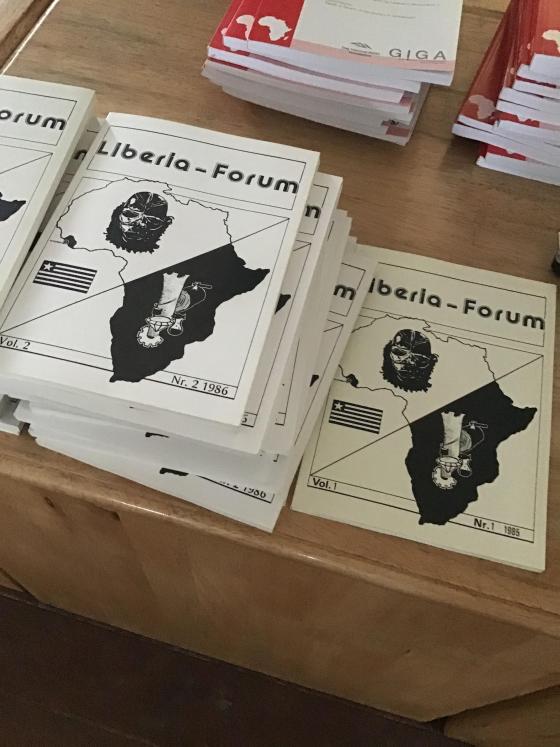Liberia: A Gift of National Pride

The Ministry of Information, Cultural Affairs, and Tourism has received 137 pieces of books that would help in preserving and sharing the country's rich history for present and future generations.
The volume of books includes literary histories, poetry, and fiction from the 1980s and comes at a time when the country’s only operational museum, which is historical in its own right, has suffered from neglect and underfunding; and for several decades, has had no budget to buy any new historical books on Liberia.
It is a collection of eloquent storytellers’ works – containing endless works of art, from poems, plays, and essays to novels and nonfiction.
And while being impressed by the variety and breadth of the book, Darius G. Gweh, the Director for Culture Affairs at the Ministry of Information, described it as a collection to aspire’ and that it culturally represents many facets of Liberian life.
“Our country's civilization's history, noted down in writing by many, had been lost for many years due to the 14-year civil war, so getting some back restores the fingerprints of indigenous knowledge and culture that the current generation of Liberia has not seen or heard about,” Director Gweh added. "The books donated contain stories about our culture and forefathers’ way of life. Literature is a powerful tool in connecting people to their past as it provides clues that remembrance is necessary to achieve a sense of pride for one’s country.”
According to Gweh, the donated textbooks constitute the largest return of historical literary material donated to the museum in recent times.
He added that the collection represents historical and cultural narratives that the future generations need as some of the books are authored by the country’s most inventive and imaginative writers -- whose works generations upon generations will need.
“Historically, the National Museum is 100 years old and it stands as a preservation icon to history, and it needs to be more preserved for the future generations,” Gweh added. “And with this donation, we are adding historical value to the museum that would reawaken the minds of Liberians to the point where they would be informed about missing perspectives in Liberia’s cultural history via these books.
The national museum, which serves as a point of pride for Liberians today, saw almost all of its collection, including valuable textbooks, carried off by rebels and locals exploiting the chaos of the Second Liberian Civil War. However, the museum still hosts a few key artifacts, which is a shadow of itself including a 250-year-old dining table that Queen Victoria gave to Joseph Jenkins Roberts, Liberia’s first president.
Historically, the institution is housed in what used to be the legislature, in downtown Monrovia. The building was damaged and looted during both civil wars but has been subsequently upgraded and repaired with the assistance of UNESCO. Today, the museum’s ground floor has an impressive collection of musical instruments, masks, and other crafts that provide a strong introduction to the country’s indigenous tribes and traditions, while the second and third floors chronicle the country’s founding, challenges, and successes, including the recent Ebola epidemic.
The books are to be displayed in the museum on Broad Street, to provide valuable insight to many Liberians eager to learn more about the country. The books are donated by the Village People Empowerment (ViPeE), a German non-governmental organization.
ViPeE’s mission in Liberia is to improve rural livelihoods by and through the provision of safe drinking water and medication supplies.
ViPeE Development Coordinator, Rudolf Janke, explained that the process leading to the collections of the book started three years ago when he visited the national museum and noticed that it lacked substantial materials literally on Liberia culture. This moved him to compile materials to strengthen the cultural heritage of Liberia.
Rudolf disclosed that the books were made available through the kind courtesy of some Liberians in Germany, who he worked within the 1980s and 90s, including other philanthropists from Germany who joined hands together to produce all the stories in the book.
“The cultural heritage of Liberia is highly respected in Germany and, as such, this should be taken seriously by Liberians. History and culture need to be respected by people for the future, even if they do not know.
